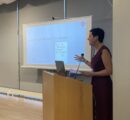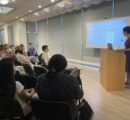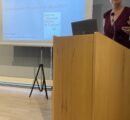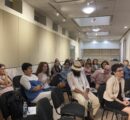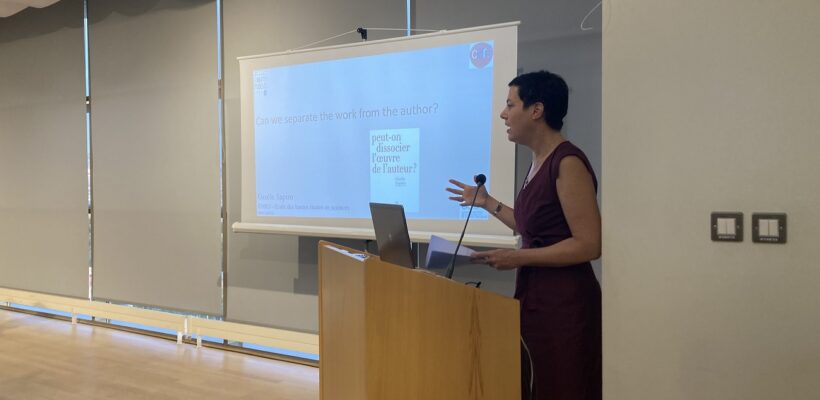
AUA Hosts Sociology Professor Gisèle Sapiro
2 min readYEREVAN, Armenia — On October 3, the American University of Armenia (AUA) Gender Studies Minor and the Open Center for Leadership and Governance, in partnership with the Embassy of France in Armenia, hosted Dr. Gisèle Sapiro, professor of Sociology at the Ecole des hautes etudes en sciences sociales and research director at the Centre européen de sociologie et de science politique (European Center for Sociology and Political Science) of the Centre national de la recherche scientifique (The French National Center for Scientific Research).
Dr. Sapiro first met with a group of students in the Graduate Certificate in Translation program. The conversation with them centered on her recent paper “How Do Literary Works Cross Borders (or Not)? A Sociological Approach to World Literature.” After an overview of the paper and the project to which it belonged, the discussion turned to the ethical obligations of translators and the sometimes inherently political nature of translation.
Dr. Sapiro then held a public talk in the Akian Art Gallery, addressing the question “Can we separate the work from the author?” Using examples from literature, film, and philosophy, she presented several criteria to consider when assessing how we should engage in the works of those who have engaged in morally reprehensible behavior. The Q&A session that followed, moderated by AUA Adjunct Lecturer Dr. Hayarpi Papikyan, furthered discussion about the role of publishers, the role of the media, and the role of society at large in creating relationships between such works and their controversial creators.
The evening ended with a short reception where the speaker mingled with students, faculty, staff, and visitors.
Founded in 1991, the American University of Armenia (AUA) is a private, independent university located in Yerevan, Armenia, affiliated with the University of California, and accredited by the WASC Senior College and University Commission in the United States. AUA provides local and international students with Western-style education through top-quality undergraduate, graduate, and certificate programs, promotes research and innovation, encourages civic engagement and community service, and fosters democratic values.

